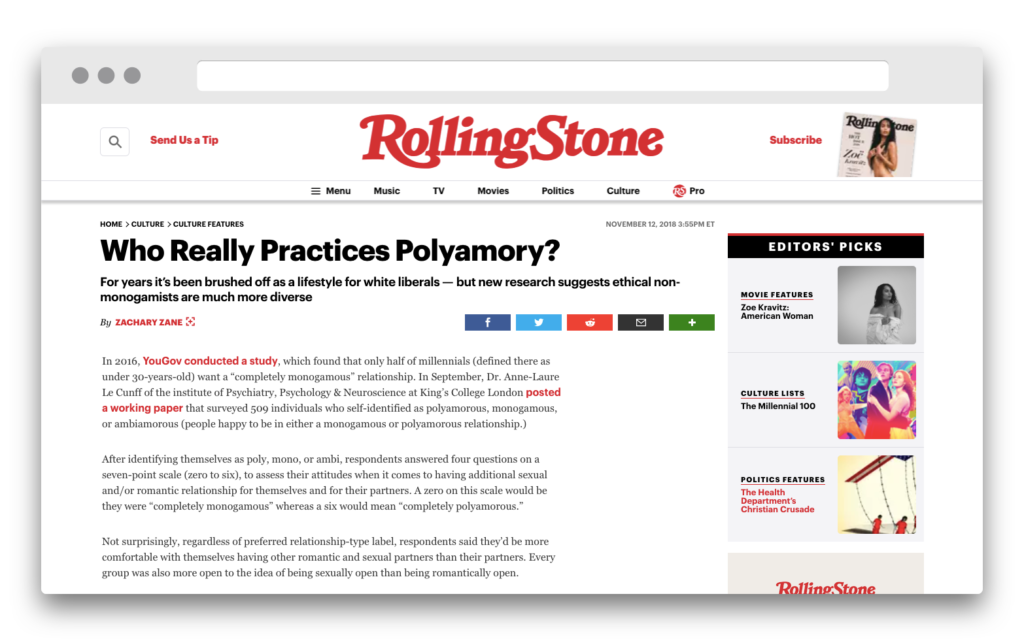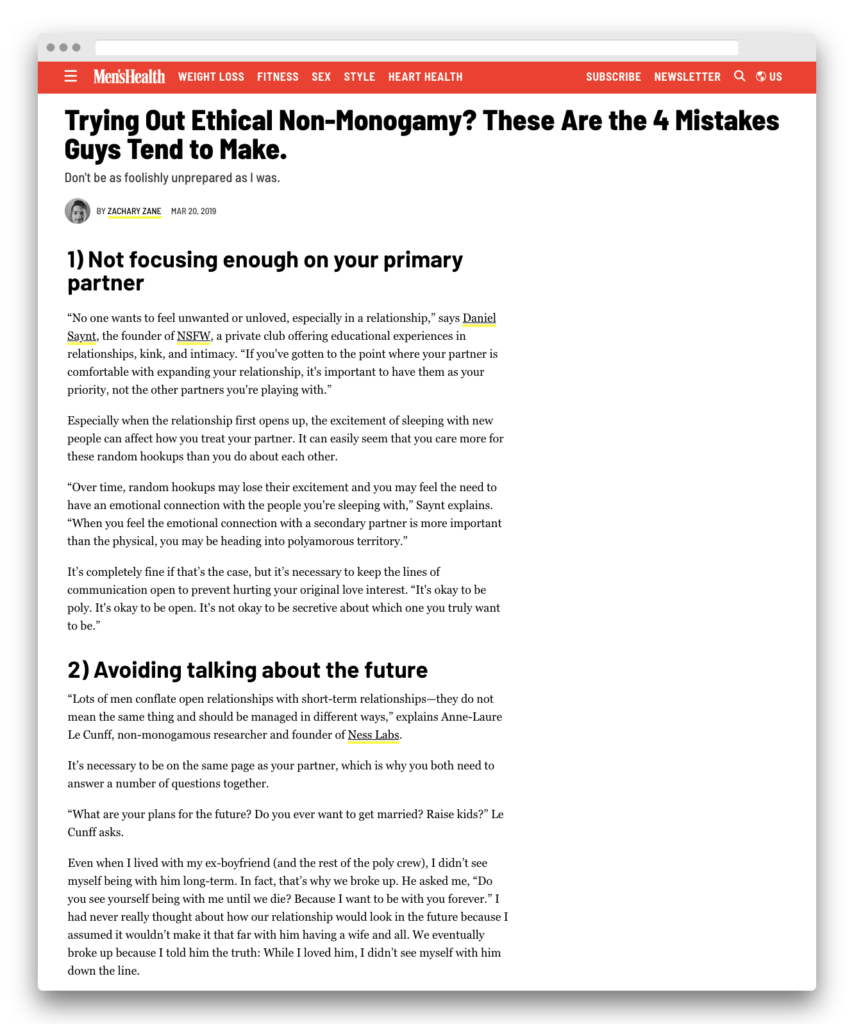Research at Ness Labs focuses on mental wellness, productivity, consumer psychology, and new relationship models. All articles are open access and distributed under the terms of the Creative Commons Attribution License. These are working papers, and hence they represent research in progress. They represent the opinions of the author, and are the product of professional research.
Non-Monogamy: Measuring Degrees of Sexual and Romantic Exclusivity in Relationships.
Abstract
It has been speculated that monogamy exists on a continuum as opposed to the traditional view of a discrete class. This research, using a convenience sample of 509 individuals who self-identified as either polyamorous, ambiamorous, or monoamorous, examines the potential validity of a scale to experimentally measure degrees of sexual and romantic exclusivity, ranging quantitatively along a spectrum. The scale was designed to measure the attitudes of participants towards the ideas of their partner and/or themselves being sexually and/or romantically involved with other individuals. Participants exhibited a range of scores signifying various degrees of acceptance towards the idea of multiple sexual or romantic relationships, supporting the hypothesis of monogamy and polyamory as members of a spectrum. The evidence is discussed and future developments based on these findings are suggested.
Keywords
consensual non-monogamy, polyamory, romantic relationships, sexual relationships
Citation
Le Cunff, A. (2018). Non-Monogamy: Measuring Degrees of Sexual and Romantic Exclusivity in Relationships. Sexuality & Gender Studies eJournal, 26(2), 41-47.
Coverage


Mindframing: A Proposed Framework for Personal Growth
Abstract
To date, no frameworks are specifically targeted at managing personal growth in a holistic manner, as opposed to solely focusing on educational or professional outcomes. Most frameworks are concerned with the planning of people’s career development, despite personal growth being considered a main pillar of psychological well-being. Following a discussion and definition of personal growth and its defining features, the paper proposes a framework for managing personal growth in order to help individuals achieve their potential through applied and iterative learning. The framework can also be used to enhance the theory and practice of personal growth.
Keywords
personal growth, self-development, mindframes, positive psychology
Citation
Le Cunff, A. (2019). Mindframing: A Proposed Framework for Personal Growth. Educational Psychology & Cognition eJournal, 21(2), 15-20.
Coverage

Want to be notified when new research is published? Subscribe to the Maker Mind newsletter.
Ness Labs © 2019. Privacy Policy.
